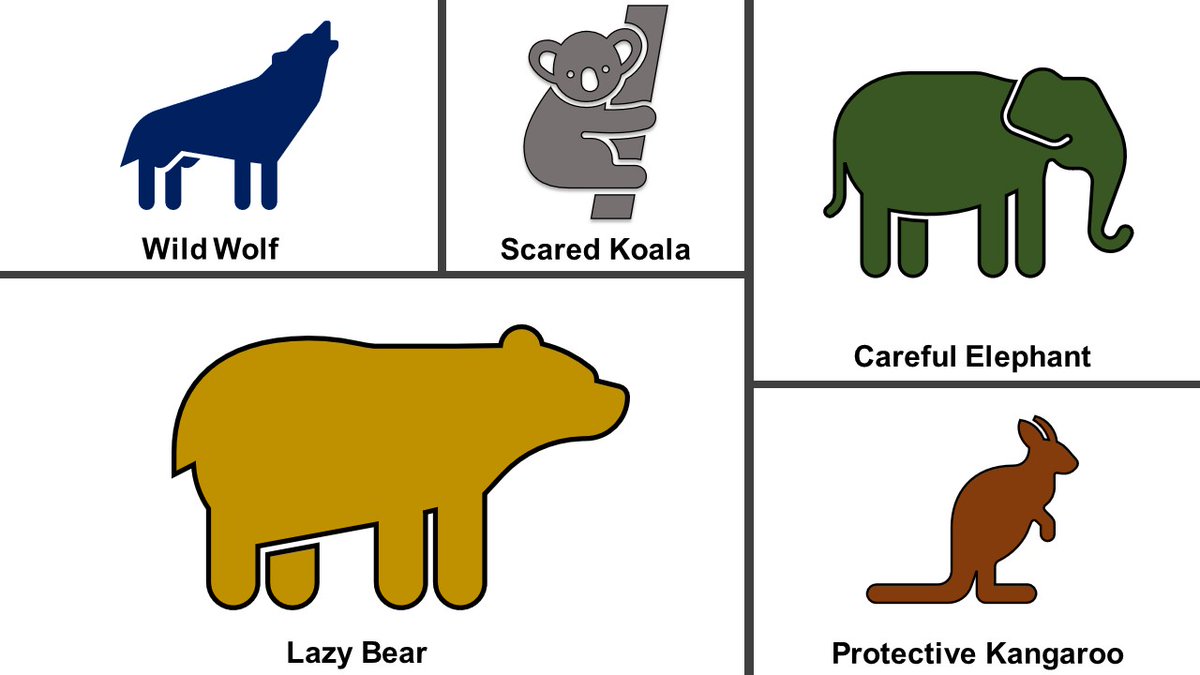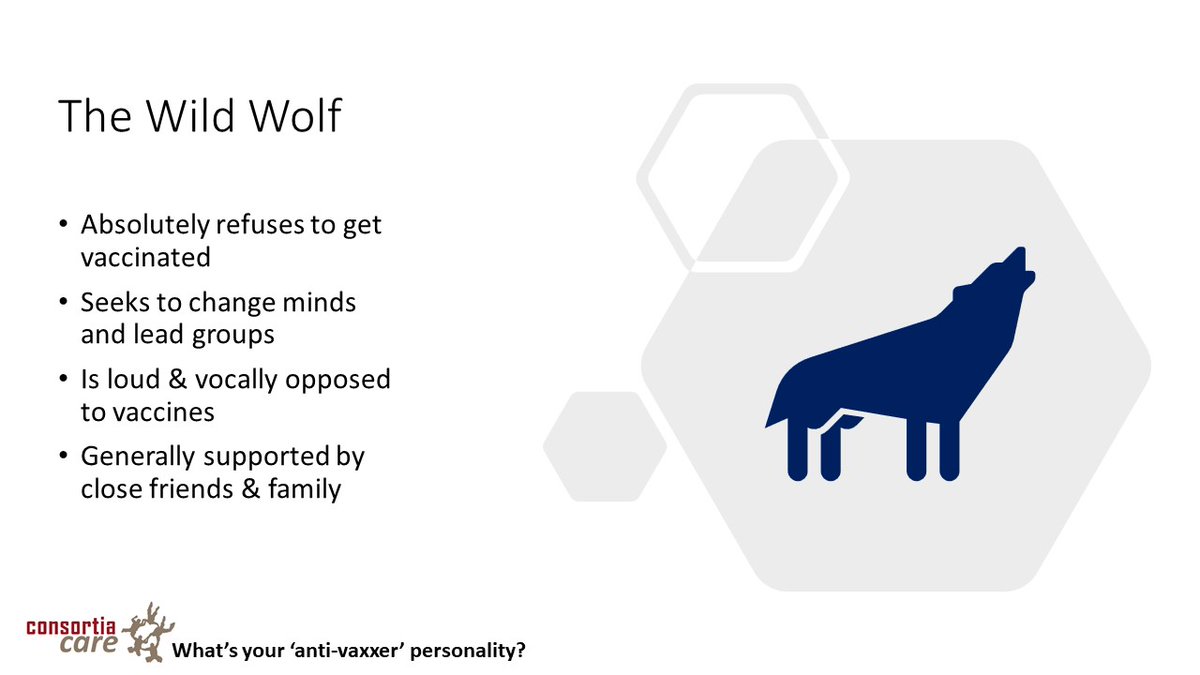
There are different species of 'anti-vaxxer' AND they each have different needs to join the herd of vaccinated Albertans.
So... what's your 'anti-vaxxer' personality, Alberta?
#COVID19AB
So... what's your 'anti-vaxxer' personality, Alberta?
#COVID19AB

THE WILD WOLF
Wild wolves absolutely refuse to get vaccinated, and often travel in packs. They are loud and vocally opposed to vaccines, because they seek to lead their pack... or at least maintain close ties with a small group of friends & family (who are also anti-vaxx).
Wild wolves absolutely refuse to get vaccinated, and often travel in packs. They are loud and vocally opposed to vaccines, because they seek to lead their pack... or at least maintain close ties with a small group of friends & family (who are also anti-vaxx).

THE LAZY BEAR
The most common type of 'anti-vaxxer'. They aren't really against vaccination, but just need a bit of a push to book an appointment. The lazy bear is happy to just keep masking and social distancing until everyone else gets vaccinated.
The most common type of 'anti-vaxxer'. They aren't really against vaccination, but just need a bit of a push to book an appointment. The lazy bear is happy to just keep masking and social distancing until everyone else gets vaccinated.

THE SCARED KOALA
Koala bears want to feel supported and comfortable, and they genuinely fear the vaccine. They worry about asking questions or showing vaccine hesitancy, as they think quite intently about the benefits (and risks!) of vaccination.
Koala bears want to feel supported and comfortable, and they genuinely fear the vaccine. They worry about asking questions or showing vaccine hesitancy, as they think quite intently about the benefits (and risks!) of vaccination.

THE CAREFUL ELEPHANT
The careful elephant is slow to change, and often observes how unwise or foolish people can be when they create a stampede. Elephants seek strong consensus from trusted leaders to get vaccinated.
The careful elephant is slow to change, and often observes how unwise or foolish people can be when they create a stampede. Elephants seek strong consensus from trusted leaders to get vaccinated.

THE PROTECTIVE KANGAROO
Protective kangaroos (often mothers and expecting parents) are fearful that others might hurt themselves or their children. They believe no action is better than venturing out into the unknown, and often urge others to be careful.
Protective kangaroos (often mothers and expecting parents) are fearful that others might hurt themselves or their children. They believe no action is better than venturing out into the unknown, and often urge others to be careful.

So, assuming you don't associate with any wild wolves... what anti-vaxxer personality would you be?
cc: @ab_vax, @CaulfieldTim, @jonathanstea, @JJackson_RN, @CMOH_Alberta, @CarlyDRobinson, @Frazzling, @BrettB371, @unicornwheels
• • •
Missing some Tweet in this thread? You can try to
force a refresh




